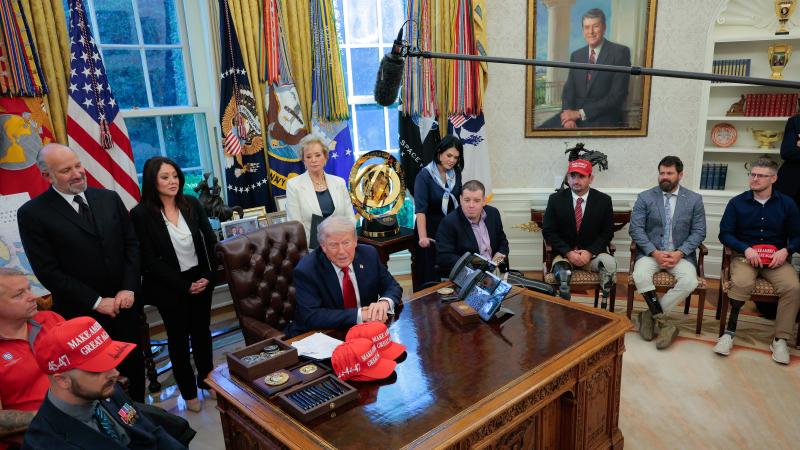Sen. Cruz leads on bill to protect military bases from intrusion by foreign adversaries
Sen. Ted Cruz, R-TX, along with several GOP cosponsors, introduced a bill to protect military installations and training areas from U.S. adversaries, including China, Iran, North Korea and Russia.
Republicans in the U.S. Senate, led by U.S. Sen. Ted Cruz, R-TX, introduced a bill to protect military installations and training areas from America’s adversaries, including China, Iran, North Korea and Russia.
The Protecting Military Installations and Ranges Act, filed by Cruz, has several cosponsors.
The nine-page bill would require the Committee on Foreign Investment in the United States “to review any purchase or lease of real estate near a military installation or military airspace in the United States by a foreign person connected to or subsidized by the Russian Federation, the People’s Republic of China, the Islamic Republic of Iran, or the Democratic People’s Republic of Korea, and for other purposes.”
Areas to be reviewed include those within 100 miles of a military installation or 50 miles of a military training route as well as air space designated as “special use airspace” and managed by the Department of Defense. The committee is to provide reports to members of Congress on properties it’s identified in their state.
The bill also would limit approval of energy projects while the foreign investment review is underway, imposing restrictions on the departments of Defense and Transportation.
"Foreign adversaries are exploiting loopholes to acquire land near our military bases and training routes, jeopardizing the safety of our troops and the integrity of our operations,” Cruz said. The bill “will block our adversaries from acquiring assets that could undermine our defense.”
The bill was filed after the Texas legislature unanimously passed the Lone Star Infrastructure Protection Act, which Gov. Greg Abbott signed into law. It bans Texas governmental entities and businesses from entering into contracts with companies owned or controlled by hostile foreign nations to gain access to Texas’ critical infrastructure.
They did so after learning that a Chinese billionaire and former Chinese People’s Liberation Army general bought over 130,000 acres of land just miles from Laughlin Air Force base in Val Verde County, the largest air force pilot training base in the U.S., The Center Square reported.
In 2023, Abbott said he would sign a bill banning foreign nationals from countries, including the PRC, that pose national security threats to the U.S. from purchasing land in Texas. The bill passed the Texas Senate with bipartisan support but was blocked from advancing in the House by a committee chair, Rep. Todd Hunter, R-Corpus Christi, after the CCP spearheaded a campaign against it, The Center Square reported.
While that bill failed in Texas, another one passed in Florida. In 2023, Gov. Ron DeSantis signed a bill into law prohibiting the sale of farmland and land near military bases to the Chinese Communist Party and its agents. It prohibits any governmental entity from knowingly entering into contracts with the CCP, or countries and entities of foreign concern and authorizes the attorney general to bring civil actions and impose penalties against violators.
Cruz’s bill was filed after a record more than 1.6 million illegal border crossers were publicly reported from four countries of foreign concern – China, Cuba, Nicaragua and Russia – under the Biden administration, The Center Square reported.
The U.S. State Department has designated CPCs for their policies of “systematic, ongoing, egregious violations of religious freedom,” which includes “torture, prolonged detention without charges, forced disappearance, or other flagrant denial of life, liberty, or security of persons.”
They include Burma, the People’s Republic of China, Cuba, Eritrea, Iran, the Democratic People’s Republic of Korea (North Korea), Nicaragua, Pakistan, Russia, Saudi Arabia, Tajikistan, and Turkmenistan.
Cuba, North Korea and Iran are also designated State Sponsors of Terrorism (SST).













